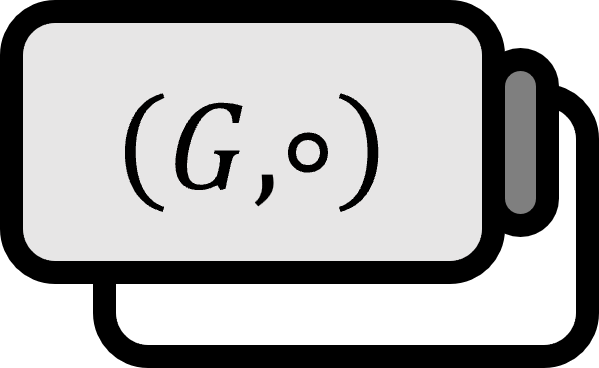Isomorphism in Abstract Algebra
Definition 1
For two binary operation structures $\left< S , * \right>$ and $\left< S' , *' \right>$, if there exists a bijective function $\phi : S \to S'$ such that for all $x , y \in S$, $$ \phi (x \ast\ y) = \phi ( x ) *' \phi ( y ) $$ is satisfied, then $\phi$ is called an isomorphism, and $S$ and $S'$ are said to be isomorphic, denoted as $S \simeq S'$.
Description
To summarize the definition, if there is a bijection that preserves operations, they are essentially considered the same. Not only in abstract algebra, this mapping, known as isomorphism, is very important throughout mathematics.
If $\phi$ preserves the operation but is not a bijection, it is called a homomorphism. Like this, there are many important mappings that are not isomorphisms, and there is extensive research on them.
The following theorem signifies that the identity of the identity element is also preserved by an isomorphism.
Theorem
If there is an isomorphism $\phi$ such that $S \simeq S'$, and if $e$ is the identity element of $S$, then $\phi (e)$ is the identity element of $S'$.
Proof
Since $e$ is the identity element of $S$, for $s \in S$, $$ e \ast\ s = s \ast\ e = s $$
$$ \phi ( e \ast\ s ) = \phi ( s \ast\ e ) = \phi ( s ) $$ Since $\phi$ is an isomorphism, for $s' : = \phi (s) \in S'$, $$ \phi ( e ) *' \phi ( s ) = \phi ( s ) *' \phi ( e ) = \phi ( s ) $$ Therefore, $\phi (e)$ is the identity element of $S'$.
■
See Also
Fraleigh. (2003). A first course in abstract algebra(7th Edition): p29. ↩︎
